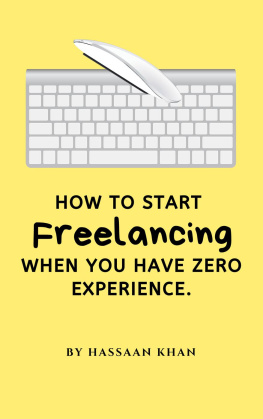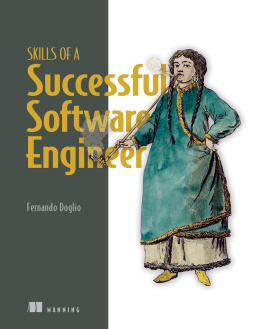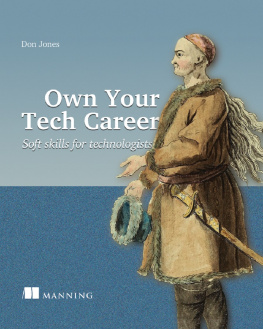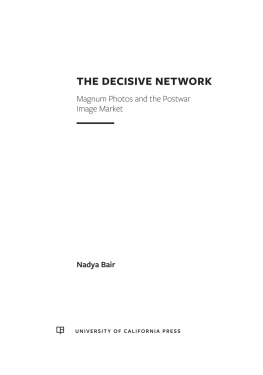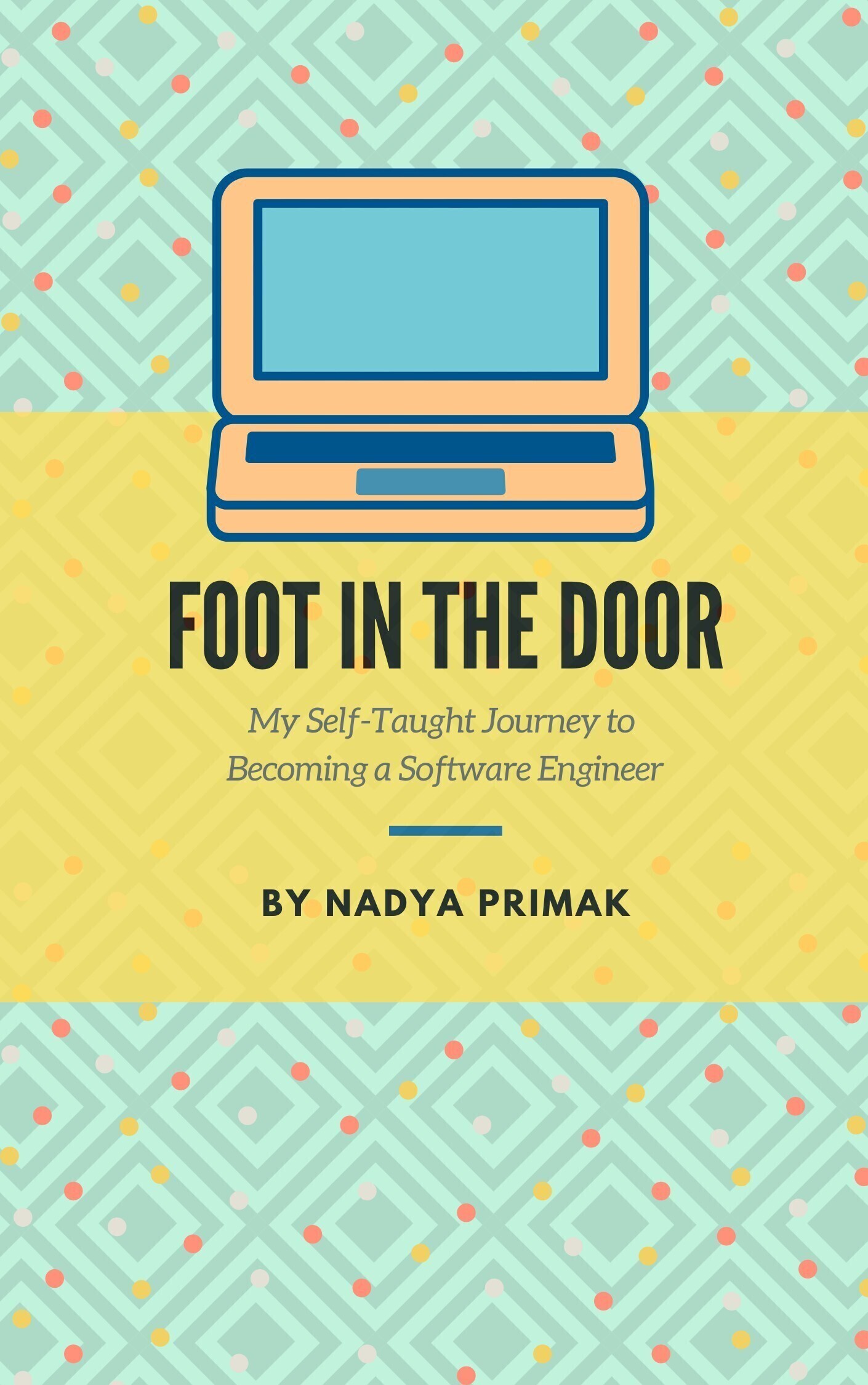Nadya Primak - Foot in the Door: My Self-Taught Journey Becoming a Software Engineer
Here you can read online Nadya Primak - Foot in the Door: My Self-Taught Journey Becoming a Software Engineer full text of the book (entire story) in english for free. Download pdf and epub, get meaning, cover and reviews about this ebook. year: 2019, publisher: Independently published, genre: Religion. Description of the work, (preface) as well as reviews are available. Best literature library LitArk.com created for fans of good reading and offers a wide selection of genres:
Romance novel
Science fiction
Adventure
Detective
Science
History
Home and family
Prose
Art
Politics
Computer
Non-fiction
Religion
Business
Children
Humor
Choose a favorite category and find really read worthwhile books. Enjoy immersion in the world of imagination, feel the emotions of the characters or learn something new for yourself, make an fascinating discovery.

- Book:Foot in the Door: My Self-Taught Journey Becoming a Software Engineer
- Author:
- Publisher:Independently published
- Genre:
- Year:2019
- Rating:5 / 5
- Favourites:Add to favourites
- Your mark:
Foot in the Door: My Self-Taught Journey Becoming a Software Engineer: summary, description and annotation
We offer to read an annotation, description, summary or preface (depends on what the author of the book "Foot in the Door: My Self-Taught Journey Becoming a Software Engineer" wrote himself). If you haven't found the necessary information about the book — write in the comments, we will try to find it.
When Nadya graduated from a liberal arts college with an arts degree she was apprehensive about pursuing a programming career path. She didnt know anyone in the field, and she didnt know what skills she needed to succeed.
It wasnt until she spent two years teaching herself web development online, participated in hackathons, and took on some short-term contracts before she got her first job at a startup and felt like her career actually started going somewhere.
Fast forward five years and Nadya has tripled her salary, shipped several games, moved to a metropolitan city, and had writing featured in numerous tech-themed publications.
Nadya Primak has done a real service by writing this book, and I recommend it to every young person starting out with a dream of a career in the tech industry.
-Lynne M Spreen, Retired HR Executive
What You Will Learn in This Book- Why you should look for mentors in unexpected places and how to gain the maximum rewards from the relationship
- How to overcome imposter syndrome and lack of confidence when you are just starting out and everyone seems to know more than you do
- Warning signs to watch out for in interviews so you avoid getting stuck in a job you hate, and how not to fall for hype
- How to avoid the endless grind of online courses and making the jump from learning to actually building something of your own
- Why a computer science degree is optional and what employers actually care about when they interview you
- Figuring out what kind of coding projects you can make and how you can use them to create a portfolio to get jobs
- Why its not just technical skills that you need to succeed as a programmer, and how lacking soft skills can really hurt you
- Different ways of gaining work experience such as helping out friends, hackathons, and remote contract work
This book is packed with career advice that is applicable to students just beginning to think about their future. Even if you didnt take a single programming class and dont plan on going to college, you can follow Nadyas path to get a job in the industry. You can also glean valuable and down to earth career advice that your career counselor is unlikely to offer you.
College StudentsMaybe you are about to graduate or you are just figuring out your major. Wherever you are, this book will help you plan ahead so you know what to expect when you are job hunting and you can decide whether to keep taking programming courses or focus your efforts elsewhere.
Career ChangersNadya was several years out of college and working for her alma mater as a workshop instructor before she decided that she wanted to be a programmer. You can teach yourself while keeping your day job by following the path outlined in the book.
Women in TechMaybe you need some inspiration, or you know another women who doesnt believe she can make it in the tech industry. Nadya struggled intensely with self-doubt and imposter syndrome, feeling like she didnt belong in the industry. The topic is one that is dear to her heart.
Nadya Primak: author's other books
Who wrote Foot in the Door: My Self-Taught Journey Becoming a Software Engineer? Find out the surname, the name of the author of the book and a list of all author's works by series.


